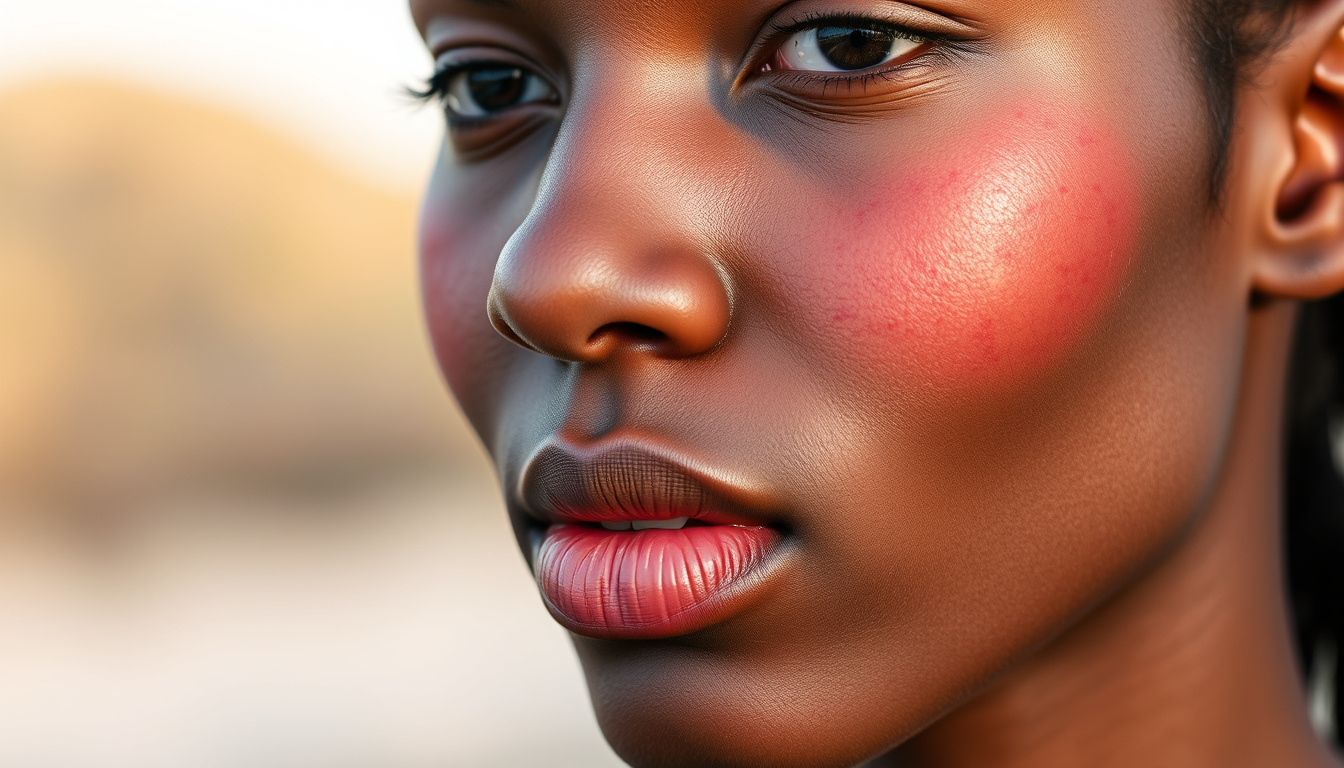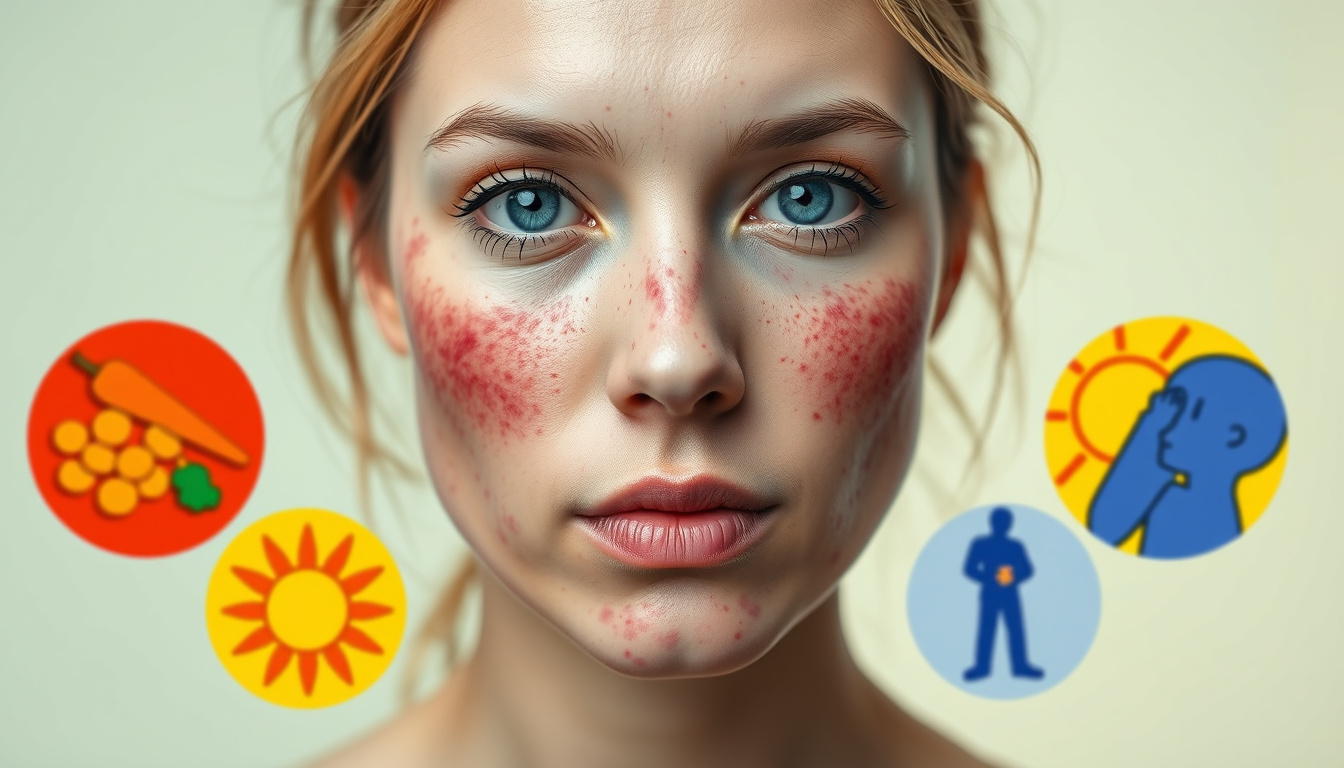Rosacea is a chronic skin condition that can often be misconstrued or misdiagnosed, particularly in darker skin tones. While it is commonly associated with fair skin, increasing awareness around rosacea in Black skin is essential for effective management and treatment. In this article, we will explore the nuances of rosacea, its prevalence in Black individuals, symptoms to watch for, underlying causes, and effective treatments, including products like Magic Skin Repair that can help soothe and restore the skin. Understanding rosacea in Black skin is crucial for those affected to take proactive steps in managing their skin health.
Order Magic Skin Repair products here
Key Takeaways
- Rosacea can affect individuals with black skin but may present differently than in other skin types.
- The prevalence of rosacea in black skin is less documented, highlighting the need for more awareness and research.
- Common symptoms of rosacea in black skin may include persistent redness, flushing, and bumps, but can be easily overlooked.
- Identifying triggers such as stress, diet, and environmental factors is crucial for managing rosacea effectively.
- A combination of medical treatments and lifestyle changes can significantly improve symptoms of rosacea in individuals with black skin.
What is Rosacea?
Rosacea is a chronic inflammatory skin condition that primarily affects the face, leading to redness, visible blood vessels, and sometimes acne-like bumps. While it is commonly recognized as a concern for individuals with fair skin, it’s crucial to understand that rosacea can also develop in individuals with darker skin tones, such as typically seen in many people of African descent. Rosacea in black skin may present differently than in lighter complexions, often leading to a delayed diagnosis due to misinterpretation of the symptoms. In black skin, the redness can be less noticeable, but other indicators such as inflammation, bumps, and a rough texture can still be evident. Managing rosacea is essential not only for skin health but also for emotional well-being, as it can significantly impact self-esteem. Products like Magic Skin Repair specialize in formulating treatments that cater specifically to darker skin tones, helping to soothe irritation and reduce redness, making it easier to manage the condition effectively.
Prevalence of Rosacea in Black Skin
Rosacea is often perceived as a skin condition that predominantly affects lighter skin tones, but recent studies have highlighted its prevalence in diverse demographics, including rosacea in black skin. This often under-discussed aspect is crucial for dermatological understanding and the effective management of the condition. In fact, the symptoms of rosacea, which can include redness, acne-like eruptions, and visible blood vessels, may be more subtle and misdiagnosed in individuals with darker complexions. This can lead to delayed treatment and increased discomfort. It’s essential for beauty and skin care brands to address these concerns, which is where products like Magic Skin Repair come into play. Designed with an understanding of diverse skin needs, Magic Skin Repair offers soothing formulations that can alleviate the symptoms of rosacea and promote healthier skin in patients with varying skin tones. Acknowledging and educating about rosacea in black skin not only helps to destigmatize this common condition but also encourages individuals to seek appropriate skincare solutions tailored to their needs.
'The truth is that the color of your skin doesn’t determine the quality of your skin, but it does influence how you experience dermatological conditions like rosacea.'
Common Symptoms of Rosacea in Black Skin
Rosacea is a chronic skin condition often characterized by facial redness, visible blood vessels, and sometimes acne-like bumps. While it is commonly associated with lighter skin tones, rosacea in black skin can present differently, making it crucial for individuals with darker skin to understand its unique symptoms. Common signs to watch for include persistent skin redness, particularly in the cheeks, forehead, and nose, as well as a tendency towards dryness, irritation, and dark, pigmented patches. Additionally, individuals may experience sensitive skin that reacts to various environmental factors. It's essential to note that because rosacea can often be mistaken for other skin issues, such as hyperpigmentation or acne, those with darker complexions should consult a dermatologist for accurate diagnosis and tailored treatment options. Products like Magic Skin Repair, which specialize in soothing and repairing sensitive skin, can be particularly beneficial in managing symptoms and improving the overall appearance of the skin affected by rosacea.
Order Magic Skin Repair products here
Causes of Rosacea: Understanding Triggers
Rosacea is a chronic skin condition that can affect individuals of all ethnic backgrounds, including those with black skin. Understanding the causes of rosacea is crucial for effective management. Triggers can vary widely and may include environmental factors, such as sun exposure and humidity, as well as lifestyle choices like alcohol consumption and stress. Additionally, skin sensitivities unique to darker skin tones can exacerbate symptoms, making it essential to identify specific triggers that may not affect lighter skin types. For those coping with rosacea in black skin, incorporating specialized skincare products can be beneficial. Magic Skin Repair offers a range of formulations designed to soothe and heal irritated skin, helping to address the unique challenges faced by individuals with darker complexions. By understanding the causes and using targeted treatments, those with rosacea can better manage their symptoms and maintain healthy, radiant skin.
Effective Treatments for Rosacea in Black Skin
Rosacea in black skin can present unique challenges, as the condition may manifest differently compared to lighter skin tones. It is essential for individuals with darker skin to understand the distinct symptoms and effective treatments available. For starters, proper skincare is crucial—using gentle, non-irritating products can help minimize flare-ups. Incorporating products like Magic Skin Repair's soothing creams can be particularly beneficial, as they are designed to calm inflammation and reduce redness. Additionally, maintaining a consistent skincare routine with ingredients like niacinamide and hyaluronic acid can provide hydration and strengthen the skin barrier. Consultation with a dermatologist is also recommended to explore tailored treatment options, which may include topical prescriptions or laser therapy specifically suited for melanin-rich skin. By combining these approaches, individuals can effectively manage rosacea and maintain healthy, radiant skin.

